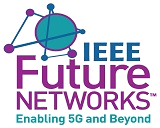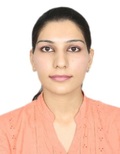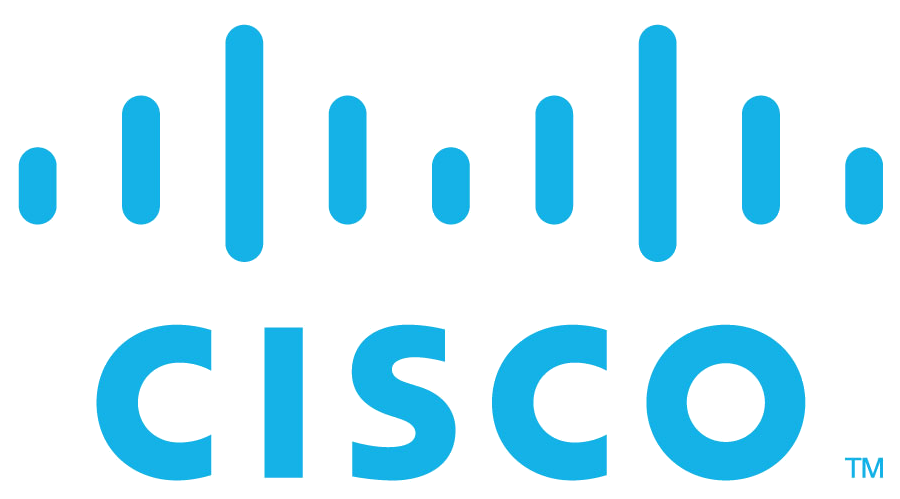Workshop on "Last-mile" Challenges and Standardization Opportunities in Smart Infrastructure
Workshop Date: 5th January 2021
Background
The world is undergoing an unprecedented pace of urbanization; and if present trends continue, the world urban population will rise at a phenomenal rate in the next few years. This rapid scale of urbanization will need smarter, sustainable cities based on smart infrastructure that are able to effectively and efficiently manage city utilities and services for its citizens. Electric grids, water distribution systems, transportation systems, communication infrastructure, waste treatment plants, commercial buildings, hospitals, homes, and education centers are existing vital facilities and infrastructure components that shape the liveability standard of a city. In the future, newer infrastructures and services will also bring benefits and create opportunities of added value to its citizens. An efficient and effective management of these existing and new city-wide systems’ requires digital transformation and harmonization of its traditional infrastructure.
Rationale
The 4th edition of LastMileS workshop, to be held in conjunction with COMSNETS 2021, is a cross-cutting forum where technology, techno-commercial and governance aspects will converge under the overarching theme of “Last-mile Challenges and Standardization Opportunities in Smart Infrastructure”. LastMileS will bring together researchers, practitioners, smart-city stakeholders and thought-leaders, in a collaborative discussion mode, to present their latest innovations in the area of an appropriate “last-mile” communication, networking, and data transfer framework; with a deep focus on enabling digital transformation and harmonization of smart infrastructure to help bring down the CAPEX and OPEX in the upcoming smart cities deployments around the world.
The workshop format will include invited talks and peer-reviewed paper presentations. Hence, we welcome submissions that provide a systems approach to smart infrastructure; which address the complex interplay of various technical aspects within the “last-mile” service delivery purview at large scale. While the work may not necessarily be addressed at large scale, however, the scope of the idea and solutions must be able to address the last-mile problems at large scale. We are particularly looking for papers reporting on experimental results of deployed systems, summaries of challenges or advancements, measurements, and innovative applications; with a clear focus on standardization elements.
Topics of interest include, but are not strictly limited to:
- Practical experiences from “large-scale, city-wide” deployments, measurements, case studies, and applications
- System design/architectural nuances and best practices for “large-scale city-wide” deployments
- Interoperability and harmonization challenges in “large-scale city-wide” systems, and standardization models
- “Last-mile” system (i.e., device, network, topology, data, configuration, mobility, and fault) management and troubleshooting at “large-scale”
- Programming and debugging methodologies at “large-scale”
- Dependability, adaptation, intermittency, and assembly methodologies at “large-scale”
- Trust, security, privacy, and authentication methodologies at “large-scale”
- Energy harvesting/scavenging methodologies and best practices for “decade long” operational life-time
- Middleware design methodologies for “large-scale” systems
- Edge-driven computing models and light-weight virtualization for heterogeneous data traffic and QoS requirements
Two types of submissions are solicited:
- Full papers: Maximum length of 6 pages, including title, author list, abstract, all figures, tables, and references. At least one author of each accepted paper must register for the workshop and present the paper.
- Vision abstracts: Extended abstract that offers a future vision for a research and standardization direction in this space, of maximum length of 3 pages. The abstract should include title, author list, narrative (the vision statement), and references. At least one author of each accepted abstract must register for the workshop and participate in a future visions session. The session will include short talks by authors of accepted abstracts, followed by discussion.
Submission Guidelines
- LastMileS invites submission of original work not previously published, or under review at another conference or journal.
- Submissions (including title, author list, abstract, all figures, tables, and references) must be no greater than 6 pages in length for Full papers, and must be no greater than 3 pages in length for Vision abstracts. A minimum number of 3 pages are required.
- Reviews will be single-blind: authors name and affiliation should be included in the submission.
- Submissions must follow the formatting guidelines as given on IEEE Website; and those that do not meet the size and formatting requirements will not be reviewed.
- All papers must be in Adobe Portable Document Format (PDF) and submitted through the LastMileS Workshop submission site on EDAS.
- All workshop papers will appear in conference proceedings and submitted to IEEE Xplore as well as other Abstracting and Indexing (A&I) databases.
Papers can be submitted through EDAS : Click Here
Important Deadlines
| Paper Submission | |
| Notification of Acceptance | |
| Camera-ready Submission |
Keynote Speakers
Aline Carneiro Viana
INRIA Saclay, FranceVisit Homepage
Challenges related to energy consumption and computation increasing demand are pushing through an architectural paradigm change. The envisaged scenario is to have network intelligence pushed at the edge, much closer to UEs, where learning, reasoning, and decision making will provide distributed autonomy, replacing thus, the classical centralized structures: Integrating collective intelligence in the network is essential. The natural Internet upgrade into a “network of subnetworks” is thus, the new trend, where “local” (more than “global”) evolution is the key principle to enhance situational awareness and adaptation of edge networks.
Yet, a direct consequence of distributed and in-network computation at the edge is their exposure and sensitivity to user mobility, which may render the location of the used edge computation non-optimal in the long run. Unfortunately, current approaches do not encompass the dynamic and uncertain behavior of mobile users. In fact, they are limited by their reliance upon aggregated static users density associated to access points: The individual is at a disadvantage in aggregated-like approaches. Still, related literature do not rely on the user susceptibility to visit new, unexplored places: Past history of movements of an individual who likes exploring new locations provides a wrong estimation of her next movement. Such problems will be exacerbated by the revolutions entailed by 5G. Here, mobility is expected to be managed on demand: Learning and proactive reasoning are essential missed points in 5G.
This talk aims to get sense of daily mobility patterns and motion preferences of individuals, and to give hints on the knowledge to be used to smartly adapt new Internet services to people's digital and dynamic behaviour.
Aline Carneiro Viana is a permanent Research Director (DR) at Inria, where she leads the TRiBE team. After a 1-year sabbatical leave at the TKN Group of the TU-Berlin, Germany, she got her habilitation degree from UPMC - Sorbonne Universités, France in 2011. Dr. Viana got her PhD in Computer Science from the UPMC - Sorbonne Universités in 2005. After having hold a postdoctoral position at IRISA/Inria Rennes, she obtained a permanent position at Inria in 2006. Her research addresses the design of solutions for tactful networking, smart cities, mobile and self-organizing networks with the focus on: human behavior analysis, opportunistic routing and data dissemination, and mobility and traffic analytics. She is a recipient of the French Scientific Excellence award since 2015 and for 6 years now and was nominated in 2016 as one of the “10 women in networking/communications that you should Watch” (1st-year nomination of N2Women community). She has published about 100 papers, presented in top-tier conferences (i.e., ACM MobiHoc, ACM SIGSpatial, IEEE Infocom, IEEE PERCOM) and in peer-reviewed journals (i.e., IEEE Transaction on Mobile Computing, IEEE Transaction on Smart Grid Journal, Pervasive and Mobile Computing Elsevier, ACM Computing Surveys, EPJ Data Science). She has been involved in the organizing committee as well as in the TPC of major conferences (ACM Mobicom, IEEE Infocom, IEEE SECON, IEEE MASS, IEEE DCOSS, IEEE LCN, IEEE PIMRC). She is also Area Editor of ACM Computer Communication Review (ACM CCR), of Ad Hoc Network Elsevier journal, and member of the editorial Board of Urban Computing Spring book series. She currently coordinates the ANR PRC MITIK and the SafeCityMap Inria COVID mission projects. She was also coordinator of the EU CHIST-ERA MACACO (with 5 European partners), the STIC AmSud UCOOL (with 1 French and 5 Latine American partners), the Inria Associate Team EMBRACE (between Inria and 3 Brazilian partners) projects.
Invited Speakers
Vivek Ashok Bohara
IIIT Delhi, IndiaVisit Homepage
Visible Light communication (VLC) systems is a new communication paradigm which has been proposed recently to meet the capacity requirements of next generation wireless networks. In this talk, I will discuss the application of this paradigm for outdoor and indoor communication scenarios. Specifically, for outdoor scenario I will deliberate the pros and cons of applying VLC architecture for V2X communication vis-à-vis standalone RF based DSRC technology. I will also share some of the preliminary analytical, simulation and measurement results obtained by our research group in this direction.
Vivek Ashok Bohara (S’08–M’13–SM’19) received the Ph.D. degree from Nanyang Technological University, Singapore, in 2011. From 2011 to 2013, he was a Postdoctoral Researcher (Marie Curie fellowship) in ESIEE Paris, University Paris-East. In 2013, he joined IIIT-Delhi, India, where he is currently an Associate Professor and also heading the Wirocomm research Group. He has authored and co-authored over 50 publications in major IEEE/IET journals and refereed international conferences, two book chapters, and one patent. His research interests are towards next-generation communication technologies, such as device-to-device communication, carrier aggregation, and Visible Light Communications. Prof. Bohara received First Prize in National Instruments ASEAN Virtual Instrumentation Applications Contest in 2007 and 2010. He was also the recipient of the Best Poster Award at the IEEE ANTS 2014 and the IEEE Comsnets 2015 and 2016 conferences.
Rajesh Gandhi
Arista Networks, IndiaVisit Homepage
WiFi networks provide great opportunity of deployment at large scale covering the entire country and provide last mile access for various use cases like Public WiFi, enterprise WiFi, Mobile data offload, IOT networks etc. These networks can be deployed in a secure and scalable manner, supporting various kinds of authentication mechanisms to suit the requirements. We have demonstrated successful deployment of nationwide Cognitive WiFi network and will be presenting a case study. The architecture provides for cloud based secure deployment, with high availability, horizontal scalability, energy efficiency and easy operations and troubleshooting, providing huge visibility and analytics and insights on various aspects of utilization of the network. The analytics can be used for getting insights of the network traffic as well as for monetization. WiFi networks provide good spectrum efficiency, channel aggregation techniques, interference management and interworking with cellular networks and present a great technology for last mile access at a very low cost. Also a good end user device ecosystem is already available at low cost enabling more and more penetration.
Rajesh is currently working as Head of Professional Services for APAC in Arista Networks. He obtained his M.Tech degree in Information Systems from IIT Kanpur. His thesis was on the topic of long distance WiFi networks. He has earlier worked for the Indian Railways as Dy. Chief Engineer in Signal & Telecom Dept. followed by a long stint in Telcos, Reliance Comm., & Tata Teleservices, from 2003 to 2015. Later he joined Mojo Networks as VP and worked in the area of Carrier WiFi Networks.
Sreenath Ramanath
Lekha Wireless, IndiaVisit Homepage
UAVs are fast gaining popularity for essential as well as non-essential deliveries. Especially, the recent COVID-19 Pandemic situation has highlighted the importance of pick-up and drop of essential commodities to the door-step. In this work, we look at the last mile delivery of essential goods by UAVs. Specifically we address the problem of UAV mobility in campus deployment, be it containment zones, residential, academic or other areas, where the primary delivery happens at a central node, from where the UAVs will pick up and deliver to the intended sub-nodes. We look at both centralized and decentralized mechanisms for delivery management and further analyse the impact of UAV mobility under various mobility models.
Sreenath received his Masters from Indian Institute of Science (IISc), Bangalore and PhD in Computer Science from INRIA, Sophia Antipolis, France. He has close to three decades of R&D experience in the Wireless Industry. He has worked on technologies including GPS, CDMA, Wireless LAN, Wimax, LTE and 5G. He has held various technical and managerial positions at Accord, Ittiam, Philips and Beceem (acquired by Broadcom). Currently, he is Director, Systems R&D at Lekha Wireless Solutions, Bangalore, where he oversees modelling and performance analysis of next generation wireless networks.
In the past, he has served as an Adjunct Professor with the EE Dept., IIT Bombay, Associate Researcher with the Alcatel-Lucent chair on Flexible-Radio & the Large Networks and Systems Group at Supelec, Paris, France. He was also an associate member of the INRIA-Bell Labs joint research lab on Self Organizing Networks & Efficient Co-operating Small Cell Networks. His areas of interest span wireless communications, signal processing, networking, optimization, and game theory. He is a senior member of IEEE and has numerous patents and publications to his credit.
Chetna Singhal
IIT Kharagpur, IndiaVisit Homepage
Unmanned Aerial Vehicles (UAVs) are increasingly being used in several applications and scenarios for providing wireless connectivity-on-the-fly. UAV networks require reliable connectivity for safe control and data exchange with mobile devices and ground terminals. UAVs can act as aerial user equipment (AUE) or Aerial access points (AP) that co-exists with the terrestrial users. We propose a self-organizing UAV-based communication framework, Aerial-SON, for efficient video streaming in dense urban scenarios. The video is adaptively streamed between drones (D2D communication) and drone to ground control station (GCS) communication with Wi-Fi Direct and Dynamic Wi-Fi configuration. The AUE consists of mobile transmitter and receiver modules in the Heterogeneous Network (Het-Net) scenario. These AUEs provide smaller cells in these Het-Nets that enable dynamic and sustained wireless video connectivity. Simulation and experimental study of UAV based Het-Net considering different network scenarios provides QoS performance analysis during video streaming among drones and with GCS. Dynamic selection of network configuration mode in our proposed framework is more effective in terms of better throughput, end-to-end transmission delay, packet retransmission, packets loss, and system utility gain during video transmission.
Dr. Chetna Singhal is working as an Assistant Professor at the Department of Electronics and Electrical Communication Engineering, Indian Institute of Technology (IIT) Kharagpur since 2015. She was awarded DST-Inspire Faculty fellowship in 2015. She has received her M.Tech. (in Computer Technology) and Ph.D. degrees from IIT Delhi in 2010 and 2015, respectively. She completed B.Eng. from University of Pune in 2008 where she was awarded University Gold medal for securing the first rank. She has worked with IBM Software Lab, New Delhi, as a Software Engineer in 2010 for a year. Her research interests are in next generation heterogeneous wireless networks, with emphasis on cross-layer optimization, adaptive multimedia services, energy efficiency, and resource allocation.
Workshop Agenda
| Time | Sessions |
| 10:00 - 10:15 | Welcome by Workshop Chairs |
| 10:15 - 10:45 | (Invited Talk) Architecture of Nation-Wide Lastmile Network using WiFi and Successful Case Study Rajesh Gandhi (Arista Networks, India) |
| 10:45 - 11:15 | (Paper 1) Improving Perceived QoS of Delay-sensitive Video Against a Weak Last-mile: A Practical Approach Abhijin Bhattacharyya (Tata Consultancy Services Ltd., India), Madhurima Ganguly (Tata Consultancy Services Ltd., India), and Ashis Sau (Tata Consultancy Services Ltd., India) |
| 11:15 - 11:30 | Break |
| 11:30 - 12:00 | (Paper 2) Analysis of Beamforming in Dense Urban Deployments Ipshita Panda (Lekha Wireless, India) and Sreenath Ramanath (Lekha Wireless, India) |
| 12:00 - 12:30 | (Invited Talk) Can VLC replace RF? Possible Application Scenarios in V2X and 5G Cellular Standards Vivek Ashok Bohara (IIIT Delhi, India) |
| 12:30 - 13:30 | Lunch Break |
| 13:30 - 14:00 | (Invited talk) Aerial-SON: UAV-based Self-Organizing Network for Video Streaming in Dense Urban Scenario Chetna Singhal (IIT Kharagpur, India) |
| 14:00 - 14:30 | (Paper 3) Architecture for Drone Assisted Emergency Ad-hoc Network for Disaster Rescue Operations Siddarth Ganesh (Amrita Vishwa Vidyapeetham, India), Vaishnavi Gopalasamy (Amrita Vishwa Vidyapeetham, India), and Sai Shibu N B (Amrita Vishwa Vidyapeetham, India) |
| 14:30 - 15:00 | (Invited Talk) Analysis of UAV Mobility in Local Area Deployments Sreenath Ramanath (Lekha Wireless, India) |
| 15:00 - 15:15 | Closing Remarks and Invitation to Keynote |
| 15:15 - 18:00 | Break |
| 18:00 - 19:00 | (Keynote Address) Motion Intelligence towards Efficient Internet Edges Aline Carneiro Viana (INRIA Saclay, France) |
Program Committee:
Mukulika Maity, IIIT Delhi, India
Paul Mitchell, University of York, USA
Vineeth Bala Sukumaran, Indian Institute of Space Science and Technology Trivandrum, India
Rajshekhar Sunderraman, Georgia State University, USA
Nidhin Vaidhiyan, IISc Bengaluru, India
Mahendran Veeramani, Indian Institute of Technology Tirupati, India
Pooja Vyavahare, Indian Institute of Technology Tirupati, India
Workshop Co-Chairs

Ashwin Ashok
Georgia State University, USA

K P Naveen
IIT Tirupati, India













































